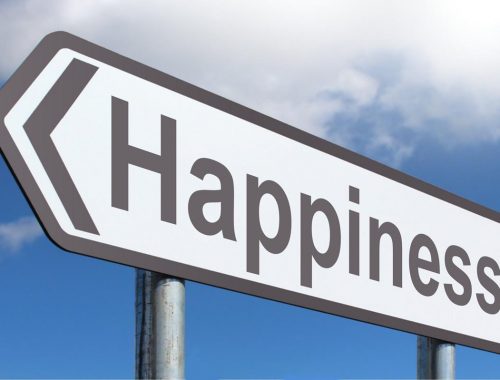Let’s Talk About Bell Let’s Talk Day
Originally published at findinghealthwellness.com on January 31, 2018.

I originally wrote this last year. I’ve amended it with the perspective of a year later. Updates are in square brackets:
Bell Let’s Talk Day is an awareness and fundraising day. This year it is today, January 31.
How Bell Let’s Talk Day works
On Bell Let’s Talk Day, Bell donates money towards mental health initiatives in Canada by contributing 5¢ for every applicable text (sent by Bell customers), call (also sent by Bell customers), tweet, social media video view and use of their Facebook frame or Snapchat filter. Every interaction counts, so you can combine these methods — or send several texts if you’re a Bell customer — and each will be worth 5¢.
And it gets people talking about mental health — and Bell.
From the Bell Let’s Talk website:
In September 2010, Bell Let’s Talk began a new conversation about Canada’s mental health. At that time, most people were not talking about mental illness. But the numbers spoke volumes about the urgent need for action. Millions of Canadians, including leading personalities, engaged in an open discussion about mental illness, offering new ideas and hope for those who struggle, with numbers growing every year.
As a result, institutions and organizations large and small in every region received new funding for access, care and research from Bell Let’s Talk and from governments and corporations that have joined the cause. Bell’s total donation to mental health programs now stands at $86,504,429.05, and we are well on our way to donating at least $100 million through 2020.

Let’s Talk: The Good
$86,504,429.05 is a lot of money. As a concept for social media awareness, it’s FANTASTIC. People are talking about mental health. Any time people share their own stories, others realize that they’re not alone. Every time we raise awareness, we have the opportunity to reduce the stigma. I myself discuss my mental health issues in part because I want others to know that they’re not alone and to see that if others are talking about it, they can too.
And, people are talking about Bell. I’m an analytics nerd, and so that part of me marvels at the media impressions and social media impressions.
(I want to see their social listening report to compare positive, neutral and negative sentiments.)
Let’s Talk: The Bad and the Ugly
Every year on Bell Let’s Talk Day I read stories on Facebook and news sites about Bell and its subsidiaries disregarding employees’ mental health. Employees and former employees come forward with their experiences. I read about how their jobs negatively affect their mental health and send them on stress leave. I read stories such as this one, in which a former Business News Network employee discussed the mistreatment of contract workers (more on this below, and read her
This morning when I handed my partner his coffee and told him that I was going to go finish a blog post I started last night about Bell Let’s Talk Day his response was, “You mean about how they’re an evil company who use this day to assuage their guilt?” (Okay, “assuage” was my word, but in the 10 minutes that have passed I’ve forgotten his exact words.) The fact that we share these views is why we’re friends and partners (we were friends before we partnered). He reminded me that he was a contractor for Bell for a decade and knows things, and he spoke of Bell preying on elderly customers (one of his relatives) to sell them services they don’t need to meet quotas.
Let’s Talk about what I think
We need to talk about mental health year-round. Mental health awareness isn’t a one-day “holiday,” especially to those dealing with mental and brain health issues. Reducing it to a one day “hashtag holiday” puts it in association with “National Taco Day.” January 31 is also “National Hot Chocolate Day”. It’s not absolutely comparable, but the comparison is one day, hashtag.
Hashtag activism (aka “slacktivism”) is not enough! I often wonder whether companies who tweet about issues for awareness (mental health and others) on one day of the year address it year-round. Maybe they do, maybe they don’t. How do they treat their employees? What programs do they have in place? You already know that Bell has problems in this area. They’re not the only big corporation. I wrote about this in October in a post about World Mental Health Awareness Day in which I discussed my experience at my day job that day.
At the time, I was a contractor for a big financial services company through a staffing agency. The job quickly took a toll on my mental health.
I had mornings when I sobbed while walking my dog, telling myself that I didn’t want to go to work. The environment was wrong for me. My ADHD and sensory issues were exacerbating my stress and depression. I finally told my boss about it because it affected my work performance and because of how unwell I felt. The red zone of my suicide spectrum (I just came up with that phrase now) is not attempted suicide, it’s me reminding myself, like a mantra that I repeat, “Suicide is not an option,” and I remind myself why. I was at that point.
[Update: This employer was recently named one of the top 300 best employers in Canada — in the final 100. Perhaps being a permanent employee is a different situation than being employed by a recruiter, because of the resources that were unavailable to me as a contractor. Technically, I was not actually employed by this company. Furthermore, I am fully aware that out of nearly 50,000 employees, bad experiences would be in the minority and so overall, it’s probably a great place to work.]
I had never told a manager about my issues before but I had to admit that I needed help and I wanted to give a reason why I wasn’t doing my best work nor acting like someone with the decades of experience that I have. My boss was sympathetic and tried to advocate for me — for which I’m extremely grateful — but the administrator told him that they couldn’t accommodate my health issues because I wasn’t one of their employees, I was a staffing agency employee, and I had to go through the agency if I wanted accommodation such as a quiet space.
[Update: Furthermore, my boss was a major cause of my mental health issues. Him going to bat for me on occasion was part of the problem, though I didn’t see it at the time. It sounds counter-intuitive, but here’s my perspective, without calling out specific behaviour: On any given morning I never knew whether I would find Mr. Nice or the “other” guy. Over a year later, I realized that this daily unstable feeling had been messing with my cortisol levels and taxing my health, including my immunity. My comment about “gratitude” last year when I wrote this was part of the continuing trauma. Not that I wasn’t grateful.]
Reading the account of the former Business News Network rang familiar with me:
My contract did not grant me access to Bell Media’s Employee Assistance Plan, meaning I had no access to mental health care through Bell.
The writer of this article gave other examples of Bell contract workers being unable to access the Employee Assistance Plan because they weren’t permanent staff.
The company I worked for has two levels of staffing agencies — the one that I associated with, and a second one that they associated with. The two agencies worked together. My job was stressful enough, and I had little energy to take it to my agency to go through the process. Thinking about it was disheartening. When I did talk to my recruiter, her advice to me was “think positively” (she said that) and “suck it up” (that one I’m paraphrasing). These are not things that should be said to someone who’s depressed. Conversations with this recruiter were the inspiration for this blog post, Never Say This to a Person With ADD. (She also said #4 on that list, “You’d hate working here…”)
Often, being contract staff feels like being a second-class citizen. Need to take a sick day? A doctor’s appointment, a religious holiday that’s not a statutory holiday/day off? No pay. That’s the system. Being encouraged to stay home when I’m sick is great, but it’s a day of pay lost. Being told “If you stay late to get your work done, we can’t pay you overtime, and so you’re saying late voluntarily” when the environment isn’t conducive to productivity feels shitty, but that’s a systemic issue. What, was I supposed to leave tasks unfinished or done poorly? Sometimes I’ve been happy to stay late. Other times, unhappy.
Corporate interest
Corporate advocacy for mental health is only valuable if each and every employee is treated with the respect and dignity that they deserve. C
There’s also the fact that it’s a publicity campaign for Bell with good ROI. They get to tap into existing customers and existing advertising deals. They are a media company after all. Altruistic? Not so much. They get both paid and free advertising. Lots of user-generated content (a marketing technique known as “UGC”).
[Update: In retrospect, maybe it is altruistic, and I’m simply being cynical.]
The financial results of social media activity
Another thing to consider:
According to the numbers released by Bell, only three percent of the cash haul was the result of social media activity, despite more than 3 million tweets and 300,000 Facebook shares.
Source:All the #BellLetsTalk messages on social media don’t actually make much of a financial difference (from 2015):
Corporate interest and profit is always top of mind.
Will I support Bell Let’s Talk Day?
Sure. When I finish this post, I’ll tweet it out with the hashtag #BellLetsTalk. I’ll also retweet other tweets, positive and neutral. The more the hashtag appears, the more people are reminded of mental health — at least for today. The more we share our stories, the more we feel heard, less alone, less stigmatized, more hopeful. [Emphasis added in the updated version of this post.]
We need to keep the conversation going today, and always. [Again, emphasis added.] We need to support ourselves and our loved ones. If you are a team manager, be aware of your team members’ needs. If you are an employee, speak up if you need to. Don’t be afraid of your mental health issues. Don’t be afraid that they exist. Don’t be afraid if you need help. Don’t be afraid to seek the treatment that works for you.
[Update: One year later, I still firmly believe in that final paragraph.]
Take care of yourselves and know that you are not alone.

On Discomfort, again

Anyone Can Change a Life
You May Also Like

My Grandmother’s Candlesticks
April 13, 2020
Is An Emotion an Attainable Goal?
March 4, 2019